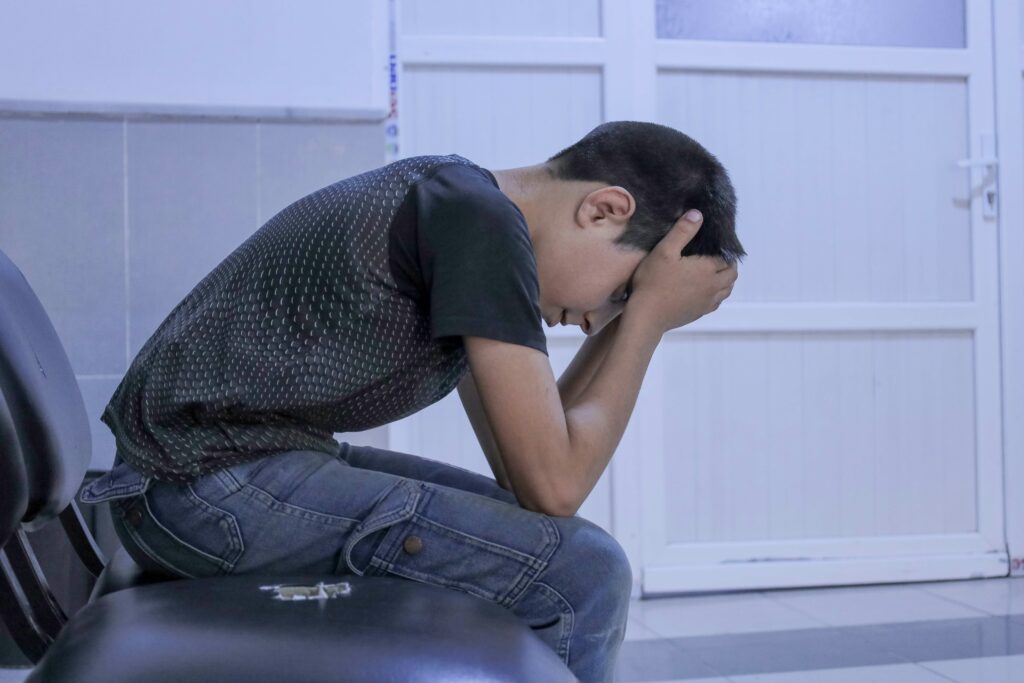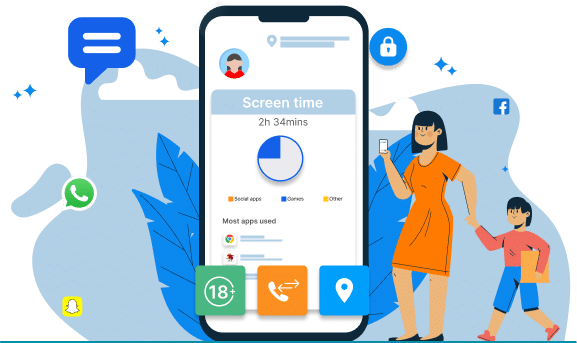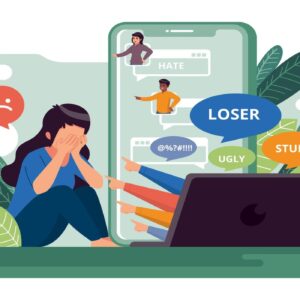
There is a scary rise in cyberbullying in South Africa, especially among kids and teens. Online abuse through apps like Instagram and WhatsApp is becoming more common as more people get access to mobiles and the internet. Social media can help kids bond, but it can also let bad things happen; parents often don’t see it.
This article will help you, as a parent, figure out how to protect kids from cyberbullying. We’ll talk about how to protect your child’s digital health, from knowing the different types to spotting signs of worry and using special trackers.
What Is Cyberbullying and Its Impact on South African Children
Cyberbullying is any kind of bullying that happens on computers, phones, or apps. It includes writing, posting, or sharing hurtful or harmful things about someone online. The prevalence of cyberbullying in South Africa has increased. There are reports that cases are increasing in elementary and higher schools.
Through social media, texting apps, and even online game chats, children are frequently subjected to online abuse. The mental damage is terrible, causing stress, sadness, low self-esteem, and, in some cases, not going to school or hurting themselves. It’s tough to catch early because cyberbullying can be faceless or sneaky.
Types of Cyberbullying Parents Should Know
Parents need to know about the following types of cyberbullying to help their kids better:
- Harassment: This means getting nasty and abusive texts over and over again.
- Impersonation: This includes making fake online profiles to hurt a child’s image.
- Outing: This means sharing private or embarrassing information with the public.
- Exclusion: This means intentionally leaving a child out of online group chats.
- Cyberstalking: This means acting in a way that makes children afraid or hurts them repeatedly.
People often act in this way on apps like WhatsApp and Instagram. WhatsApp bullying and Instagram bullying are especially harmful because group chats can make exclusion and abuse worse.
How Instagram and WhatsApp Are Used for Cyberbullying
DMs, comment parts, and “story answers” are frequently used for Instagram bullying. Other people don’t get to see these offensive texts. WhatsApp bullying can also occur in private texts and group chats. This makes it easy for bullies to contact their victims immediately.
Parents can stay updated in their children’s lives with tools like TiSPY’s Instagram and WhatsApp trackers:
- Instagram Trackers: These trackers help monitor private conversations and messages.
- WhatsApp Trackers: These trackers let you see what people are saying in chat and what the group is doing.
These tools help parents monitor and stop dangerous online behavior.
Warning Signs Your Child May Be Facing Cyberbullying

Cyberbullying in South Africa can happen to your child, and they might not always tell you. Keep an eye out for these typical signs of behavior:
- Mood swings or anger that happen quickly
- Pulling away from friends or social events
- Feelings of stress or fear after using a phone
- Avoiding school or getting worse grades
- Changes in how they sleep or eat
Emotional well-being problems are frequently associated with these symptoms. Recognizing them early by conducting appropriate social media monitoring is key to ensuring online safety for kids.
How TiSPY Trackers Help You Act Early and Effectively
With TiSPY, you can get a variety of monitoring apps made just for digital parenting to protect kids from cyberbullying online. Here’s how these bullying prevention tools assist:
- WhatsApp Tracker: Tracks foul language, abusive texts, and bullying trends in private and group chats to inform parents immediately.
- Instagram Tracker: Keeps an eye on direct messages, exchanges in stories, and comment activity to look for signs of abuse or bad behavior.
- Call Tracker: Keeps track of all incoming and outgoing calls and marks numbers that call too often or are unknown as potentially being linked to bullying or threats.
- Location Tracker: Gives parents real-time information on where a child is, which can be helpful in severe cases of abuse or stalking.
- SMS Tracker: It reads and saves text messages so parents can look for signs of online abuse, threats, or peer pressure from friends.
As a business, TiSPY stays out of sight by operating discreetly and follows the law. It allows parents to step in without breaking their child’s trust. With the help of these features, families can effectively avoid cyberbullying in South Africa.
Practical Parenting Tips to Prevent Cyberbullying

To promote online safety for kids, parents can take the following five steps:
- Educate: Show your kid what cyberbullying looks like and how to deal with it in a safe way that doesn’t make things worse.
- Communicate: Talk to them about their online life daily and in an open way so they feel comfortable talking about problems or worries.
- Set Limits: Set rules for screen time and when to use apps to limit your child’s time in dangerous digital spaces.
- Model Digital Etiquette: Be polite and thoughtful online so your kids will feel like they can follow your lead.
- Use Monitoring Tools: TiSPY’s tools and trackers let you keep an eye on bad behavior in a sneaky way and take action before it gets worse.
It is simpler to protect kids from cyberbullying when careful parenting is combined with the appropriate tools.
Conclusion
Although cyberbullying in South Africa is a serious issue that is getting worse, you can stop it as a parent. You can keep your kids safe from cyberbullying before it does long-lasting damage if you know what to do, talk to each other openly, and use smart digital tools from TiSPY.
Don’t wait for a problem to occur! Start using a good parental control app and child protection software immediately to ensure your child is safe everywhere online.




